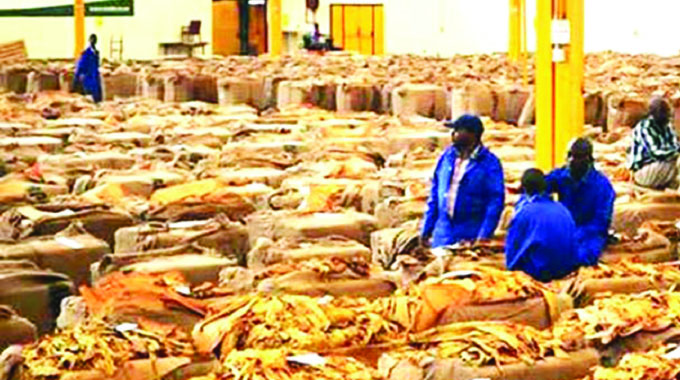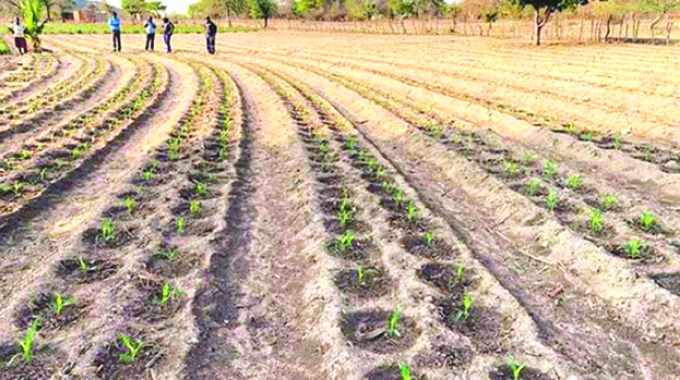Tobacco contract farming: Who is conning who?

Obert Chifamba
Agri-Insight
IT is that time of the year again when loyalty between farmers and financiers or contractors is put to the test.
This is the time when the genuineness of partnerships in agriculture is tested.
A time when the practicality of the idiom ‘separating chaff from grain’ is demonstrated when both financiers or contractors on the one hand with farmers on the other, must prove that they went into the partnerships for the good of agricultural production by meeting their end of the arrangement.
It is unfortunate that in recent years, the end of every season has essentially signalled the beginning of legal battles or protracted disputes with either the farmer or contractor accusing the other of not meeting their part of the bargain, which is not good for agriculture or such arrangements for the future.
Most farmers are currently seized with harvesting and preparing their produce either for storage or for the market.
Those that produced crops under contract arrangements have to ensure they sell the crop to the buyer stipulated in their contracts and no one else.
Those that contracted farmers must also ensure that what they are deducting from the farmers’ earnings is exactly what was agreed on when the parties signed their contracts or just agreed in principle to support each other.
The current hyper-inflationary environment has always left the agricultural terrain littered with problems with farmers accusing contractors of no longer sticking to the original agreement by announcing from nowhere that the farmers owe them so much yet they would not have given those indications at the time they signed contracts.
Other farmers believe contractors are smuggling in new clauses or figures purportedly to cushion themselves from inflation at the expense of the farmer.
It would help a lot if the Government was to make sure all contractors advised farmers of the amounts of money they will be owing from any contractual arrangement way before they append signatures consenting to be part of the deals.
This idea of farmers just discovering how much they owe on the day they receive their earnings does not create the professional impression that should go with the current drive to treat agriculture as a business that must be run jobwise.
In most cases, incidences of defaulting on loan repayments by farmers are a direct result of this haphazard way of doing business by contractors.
Remember, farmers are family people running farming businesses that must take care of the household’s socio-economic demands from January to December, just like any other business.
The only difference is that other businesses generate incomes regularly while the farming business usually has a once-off income coming once a year and at the end of the season.
It is this income that is expected to cover the families’ various requirements throughout the year, as they wait for the next windfall.
Logically, contractors should realise that they will be working with people who have obligations that extend beyond the nucleus set-up to the extended family in some cases hence the need to have a clause that includes money for miscellaneous expenses factored in when the contract package is decided.
Where this is done, the contractor should also advise the farmer of the development and its implication so that the grower is not forced to borrow cash from other sources to meet the occasional hospital bill or pay fees for her children.
Under such an arrangement, the contractor will give the farmer a withdrawing ceiling so that he does not recklessly use the money.
In most cases, farmers who side-market produce, do so to take care of urgent situations that end up making it difficult for them to re-pay their loans in total when the contractor comes knocking on their doors to collect his dues.
This in not to condone the wayward behaviour by those farmers who sell their produce to people or buyers who were not involved in financing the production process, but just to highlight weaknesses of the contracting process that end up compromising its goodness.
It just does not make sense for a contract arrangement to ignore the fact that the farmers will be waiting for their once-in-a-year income without any other source of income and still expect them to make a wholesome payment of what they owe when they eventually sell their crops.
In most cases, the potential earnings will never be realised, thanks to a million other reasons, including the weather for those that produce crops on dry land.
On the one hand, the debts they accrue elsewhere throughout the year will also need to be serviced.
The truth is that the farmers in most cases borrow pledging to repay once they sell their crops.
In this case, they will be using the same crop that the contractor is also expecting to buy and recover the money he invested as some kind of collateral.
Obviously, the neighbour who would have lent the farmer the cash at her time of distress will be the first to receive what he is owed with the contractor coming last.
This is something that can be avoided if contractors also include an amount for the farmer’s upkeep in the contract agreement and make sure the farmers are instructed to exercise strict financial discipline so that they do not over withdraw the cash from the bank administering the loan.
Now that most farmers understand that farming is a business on its own that needs proper use of resources including finances, it must not be a challenge making them understand that the amount they will be getting from the contract arrangement will include a bit for their welfare.
If the contract stipulates that the farmer is to get inputs or mechanised implements as aid, then it should be remodelled to include the welfare finance facility to take the farmer through to the marketing period.
Most cases of defaulting are happening in the smallholder category of farmers who do not have the capacity to produce a diversity of crops in one season.
These farmers also do not have irrigation facilities to supplement natural rains.
This means once a farmer realises she is faced with crop failure when there is also a loan to be re-paid, the next thing is that she looks for a buyer to get quick cash instead of going to the contractor who will take away everything and leave her empty-handed.
Crop failures usually come with very tough times for farmers. For their families to survive, they have to borrow more money while the loan will be accruing interest that will end up making it so large that no matter what they earn, they will be unable to repay in totality.
The reality on the ground is that contract arrangements thrive on the proper management of revolving funds that must be continuously replenished at the end of every season so that they can fund a fresh outing and survive to the next.
Once the fund is disrupted through high rates of defaulting, then that will be the end of the contractor and farmers must also be prepared to go it alone — arduously or look for another suitor.








Comments